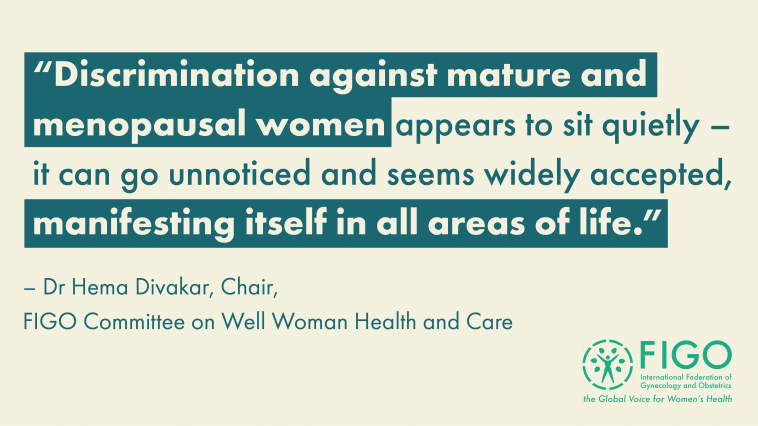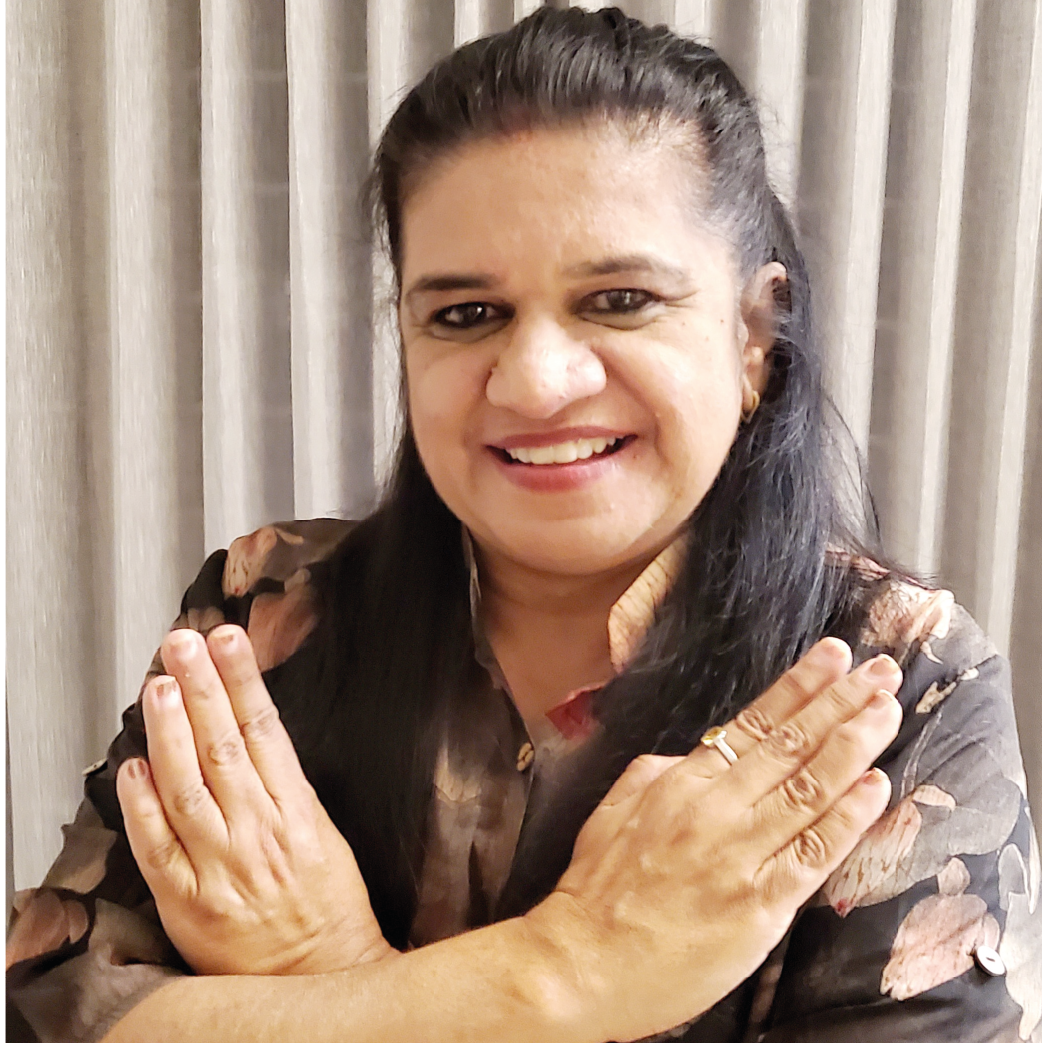#BreakTheBias: Overcoming menopause discrimination
Ahead of this year’s International Women’s Day, with the theme #BreakTheBias, we spoke to the Chair of FIGO’s Committee on Well Woman Health and Care. We discussed menopause discrimination and how we can all counter ageism and break the bias that menopausal women experience in various settings.

Menopause is the end of a woman's menstrual cycles, and marks the moment when she can no longer conceive naturally. The menopause is a natural part of ageing that usually occurs between 45 and 55 years of age, as a woman's oestrogen levels decline. In spite of this, silence, stigma and shame around women’s health are apparent during menopausal years.
The prevalence of menopause discrimination
Research has shown that silence, shame, discrimination and stigma relating to ageing and the menopause are highly prevalent and can have a huge impact on quality of life.
The FIGO Committee on Well Woman Health and Care is committed to promoting wellness across the life course, and works to break the many biases women face throughout their lives.
According to Dr Hema Divakar, Chair of the Committee on Well Woman Health and Care, discrimination against mature and menopausal women appears to sit quietly – it can go unnoticed and seems widely accepted, manifesting itself in all areas of life.
For instance, instead of seeing workplaces as made up of diverse people of all ages, backgrounds and characteristics, the overriding message for older workers seems to be that mature age is a one-way ticket to certain decline.
There can be mental health impacts that result from being marginalised and/or locked out of paid employment opportunities. Menopausal women are stereotyped as ‘experienced’ but ‘high risk and inefficient’.
– Dr Hema Divakar, Chair of the Committee on Well Woman Health and Care
Dr Divakar highlights that, beyond the workplace, the shame, stigma and lack of understanding that characterises the menopausal transition can also impact intimate and intergenerational relationships.

Counteracting ageism and enacting change
FIGO advocates for ensuring wellness and preventive health care beyond a woman’s reproductive age, notably by making recommendations for, and helping with the implementation of, a structured approach to care at all ages.
As part of this, the Committee on aims to contribute to changing the attitudes of health care providers towards mature people across the globe. As explained by Dr Divakar,
In the health industry, some people feel that rather than simply treating issues as health issues, the attitudes of some health professionals may make people feel ‘old’.
It has been suggested that certain symptoms in older patients (such as balance problems, memory loss and depression) can be dismissed from the outset as ‘old age’ instead of being viewed as potentially treatable health conditions. The committee wants to help change this type of attitude.
As well as educating health care workers, it is essential for reliable and accurate education and information about menopause to be accessible. This will contribute to overcoming stigmas, reduce health inequalities and increase awareness. Ultimately, Dr Divakar underlines how raising awareness of menopause and its symptoms and breaking the bias against menopausal women can take many forms:
The bias experienced by menopausal women due to ageism is real. We can point this out to friends, family and colleagues. We can counter it by lobbying members of Parliament. We can build legal cases at the local, state or international levels when discrimination happens. These are all actions that can assist in creating change, and FIGO can amplify these initiatives as the global voice for women’s health.